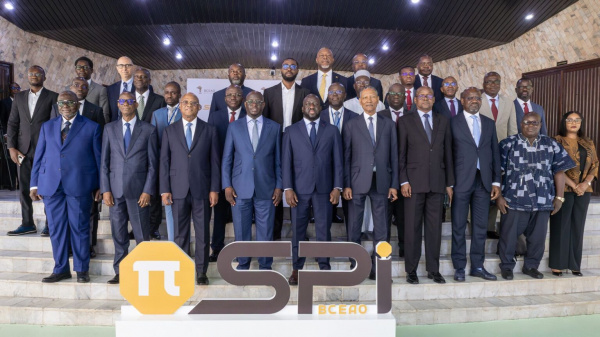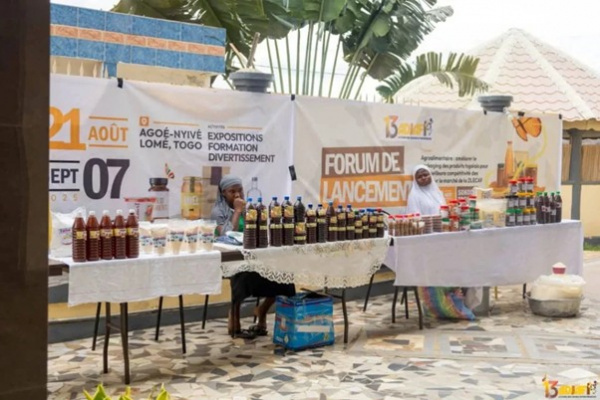Togo has initiated a territorial marketing strategy aimed at enhancing the economic and tourism potential of five significant towns: Atakpamé, Kpalimé, Blitta, Kara, and Aného. This initiative, spearheaded by the Ministry of Industry and Investment Promotion (MIPI) with the support of GIZ, was officially launched in Atakpamé on January 30, 2025, by Minister Manuella Santos.
The government’s objective through this project is to alleviate the concentration of development in Lomé, the capital, which currently houses over 60% of businesses and 71% of employment opportunities. The strategy is designed to highlight regional assets, attract investors, enhance infrastructure, develop essential industries, and promote tourism. Scheduled to continue until 2029, the program will include the establishment of special economic zones (ZES), the creation of tourist circuits, and the development of industrial units tailored to the unique characteristics of each town.
Kpalimé: Focus on Tourism and Agribusiness
Kpalimé is recognized for its scenic landscapes and artisanal crafts; however, it lacks a structured tourism framework. The project aims to construct modern hotels, develop ecotourism pathways, and enhance attractions such as Kloto Mountain and the Womé waterfalls. Additionally, local authorities plan to increase the processing of coffee and cocoa.
Kara: Establishing a Training and Agro-Industrial Center
Kara is evolving into a center for training and agro-industry. With the presence of a university and technical schools, the city aspires to cultivate a skilled workforce for the agri-food sector. It is also the site of a pilot agropolis development project. The initiative aims to establish processing facilities for vital crops, including cereals, shea, soya, and cotton.
Furthermore, a solar power plant is set to be constructed in the northern city to address the rising energy demands and ensure a reliable power supply for local industries. The overarching plan is to position Kara as a growth center for Northern Togo, emphasizing training, industrialization, and innovation.
Aného: Promoting Ecotourism and Heritage Development
Aného, once the colonial capital, is poised to capitalize on its rich history and scenic landscapes to establish itself as a prominent tourist destination. The government intends to restore significant historical sites, enhance hotel accommodations, and develop a tourist route that connects Aného with cultural landmarks in nearby Benin. This initiative will also focus on promoting coastal tourism and implementing ecological measures to safeguard local biodiversity.
Atakpamé: Transforming into an Agricultural and Industrial Hub
Situated strategically between northern and southern Togo, Atakpamé is on the path to becoming a regional center for agri-food processing. The area boasts fertile soil ideal for cultivating yams, vegetables, and tropical fruits, alongside a strong tradition of livestock and aquaculture. The objective is to attract industries capable of processing these agricultural products locally, thereby decreasing dependence on imports and increasing value addition. Marketing efforts will be directed towards enhancing road and energy infrastructure to facilitate new business ventures. Additionally, Atakpamé aims to showcase its cultural heritage to draw visitors interested in nature tourism and local handicrafts.
Blitta: Overcoming Obstacles in Establishing a Special Economic Zone
Blitta, located in central Togo, plays a crucial role in the nation’s development strategy. With its expansive land and low levels of urbanization, the town possesses significant untapped agricultural potential, particularly in cash crops and livestock. To harness this potential, the government plans to establish a special economic zone (ZES) aimed at attracting industrial investments and fostering local agricultural product processing.
This strategy will also involve enhancing transportation infrastructure and creating a logistics network to position Blitta as an agro-industrial distribution center. Achieving this will necessitate training local workforce and improving access to essential services such as electricity and clean water.
The Togolese government has allocated a budget aimed at fostering regional development and improving territorial branding. This financial commitment will be augmented by substantial investments in infrastructure and the establishment of special economic zones (SEZs), facilitated through public-private partnerships (PPPs) and support from international donors.
A Strategic Funding Initiative to Realize Goals
In order to attract investors, the government plans to host investment forums in the five designated cities, thereby linking local authorities with both national and international investors. The approach prioritizes the use of digital tools, which include social media initiatives, multimedia content, dedicated city platforms, and cultural events such as festivals.
This comprehensive plan seeks to achieve a more balanced economic development across Togo by harnessing the potential of its various regions.









